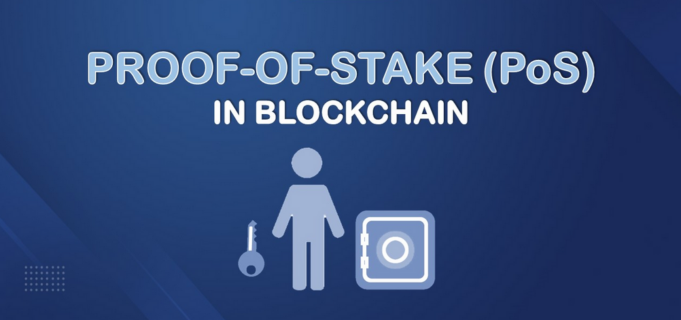In the realm of blockchain networks, Proof of Stake (PoS) emerges as a consensus mechanism, providing a less resource-intensive alternative to the conventional Proof of Work (PoW). Unlike PoW, where miners engage in solving intricate mathematical problems to validate transactions, PoS relies on validators chosen based on the cryptocurrency they hold and are willing to “stake” as collateral for creating blocks and validating transactions. The historical roots of PoS trace back to the early stages of blockchain technology, with initial experiments aimed at mitigating the energy consumption concerns associated with PoW. While early designs lacked practical implementation, the last decade witnessed the ascent of PoS as a viable and energy-efficient alternative. The core purpose of PoS lies in enhancing the efficiency and sustainability of blockchain networks, with ongoing evolutionary efforts addressing scalability issues, environmental impact concerns, and emphasizing greater decentralization in blockchain ecosystems. For those seeking valuable education on investment in this domain, immediate-ewave.com offers comprehensive resources to aid in understanding blockchain and cryptocurrency dynamics.
Key Principles of Proof of Stake
Stakeholder Involvement and Validation
In a PoS system, stakeholders (individuals holding a stake in the cryptocurrency) play a pivotal role in block validation. The more cryptocurrency a participant is willing to “stake” as collateral, the higher the likelihood they will be chosen to validate transactions and create new blocks. This economic model aligns the interests of participants with the security and integrity of the network.
Consensus Mechanism Variations within PoS
Various PoS implementations employ different consensus mechanisms, each with its unique approach to validating transactions. Some notable examples include Delegated Proof of Stake (DPoS), Practical Byzantine Fault Tolerance (PBFT), and Ouroboros. These mechanisms contribute to the overall security and efficiency of PoS networks.
Security Features and Network Integrity in PoS
PoS networks utilize cryptographic techniques and economic incentives to maintain security. Validators are economically motivated to act honestly, as malicious behavior could result in the loss of their staked assets. The combination of cryptographic principles and economic incentives ensures the integrity and reliability of PoS-based blockchain networks.
Advantages and Challenges of PoS
Environmental Sustainability Compared to Proof of Work (PoW)
One significant advantage of PoS over PoW is its reduced environmental impact. By eliminating the need for resource-intensive mining activities, PoS significantly decreases energy consumption, making it a more sustainable choice for environmentally conscious blockchain enthusiasts.
Scalability and Transaction Throughput
PoS addresses scalability concerns more effectively than PoW, allowing for faster and more scalable transactions. With the elimination of energy-intensive mining processes, PoS networks can achieve higher transaction throughput and lower confirmation times.
Security Concerns and Mitigation Strategies
While PoS systems offer enhanced security, potential challenges such as the “Nothing at Stake” problem and long-range attacks exist. However, ongoing research and the evolution of PoS protocols aim to mitigate these challenges, ensuring the robustness of the overall system.
PoS Implementations in Prominent Blockchains
Ethereum 2.0 and the Transition to PoS
Ethereum, a prominent blockchain network, is in the process of transitioning from PoW to PoS with Ethereum 2.0. This upgrade aims to enhance scalability, diminish energy consumption, and fortify overall network security.
Binance Smart Chain and Its Unique PoS Approach
Binance Smart Chain employs a variant of PoS called Delegated Proof of Stake (DPoS). This approach involves a selected group of validators who are entrusted with the task of block validation. DPoS enhances scalability and transaction speed, making it a notable PoS implementation.
Cardano’s Ouroboros: A Detailed Look into PoS Consensus
Cardano utilizes the Ouroboros consensus mechanism, a PoS protocol designed to ensure security, decentralization, and sustainability. Ouroboros achieves consensus through a unique process involving slot leaders, epochs, and stake delegation.
Staking in Proof of Stake Networks
Staking Process and Mechanisms
Staking in PoS involves participants locking up a certain amount of cryptocurrency as collateral to participate in block validation and transaction verification. The staking process varies among different PoS implementations but generally includes elements such as delegation and reward distribution.
Staking Pools and Their Role in PoS
Staking pools enable participants to combine their staking resources, increasing the collective chance of being selected as validators. This collaborative approach enhances decentralization and allows participants with smaller holdings to contribute effectively to the network.
Rewards and Incentives for Stakers
Stakers in PoS networks receive rewards in the form of additional cryptocurrency for their participation in the validation process. This economic incentive encourages network participants to act honestly and contributes to the overall stability and security of the PoS ecosystem.
Governance and Decision-Making in PoS Networks
Decentralized Governance Models
PoS networks often incorporate decentralized governance models, allowing stakeholders to participate in decision-making processes. This approach promotes community involvement and ensures that changes to the protocol align with the broader interests of the network.
Voting Mechanisms and Community Involvement
Decisions in PoS networks are typically made through a voting process, where stakeholders cast votes based on the amount of cryptocurrency they hold. This democratic approach enhances transparency and decentralization, giving a voice to the community in shaping the network’s future.
Evolution of Governance Structures in PoS
The governance structures in PoS networks are subject to ongoing evolution as developers and stakeholders experiment with new models. Striking the right balance between decentralization and efficiency remains a key focus, with continuous improvements and adaptations to meet the needs of the growing PoS ecosystem.
Future Trends and Evolution in PoS
Hybrid Consensus Models and Their Emergence
The future of PoS may witness the emergence of hybrid consensus models, combining the strengths of PoS with other consensus mechanisms to address specific challenges. These hybrid approaches aim to create more robust, secure, and adaptable blockchain networks.
Interoperability Challenges and Solutions in PoS Networks
As PoS networks continue to evolve, interoperability between different blockchain ecosystems becomes a crucial consideration. Addressing interoperability challenges will facilitate seamless communication and collaboration between diverse PoS networks.
PoS as a Catalyst for the Broader Blockchain Ecosystem
The role of PoS extends beyond individual blockchain networks, influencing the broader blockchain ecosystem. Its scalability, sustainability, and decentralized governance models have the potential to inspire advancements in other blockchain technologies, contributing to the overall growth of the industry.
Conclusion
In conclusion, the evolution of Proof of Stake (PoS) has profoundly influenced the blockchain technology landscape, presenting a sustainable and scalable alternative to traditional Proof of Work (PoW) mechanisms. The transition observed in major networks such as Ethereum, along with the distinctive approaches of projects like Binance Smart Chain and Cardano, underscores the enduring relevance and adaptability of PoS. Looking ahead, the maturation of PoS mechanisms involves ongoing research and development initiatives that aim to tackle existing challenges and explore novel frontiers. Key areas of emphasis for the future evolution of PoS include the integration of hybrid models, the enhancement of governance structures, and the promotion of interoperability. In the broader context, PoS has emerged as a transformative force, providing a foundation for decentralized applications with a focus on sustainability and scalability. Its core principles, encompassing stakeholder involvement, security, and governance, establish a robust framework for the continuous growth and maturation of blockchain ecosystems. The ongoing evolution of PoS is poised to play a pivotal role in shaping the future trajectory of blockchain technology.







![Wise Debit Card Review [2024] Wise Debit Card Review [2024]](https://www.techpreview.org/wp-content/uploads/2024/07/Wells-Fargo-Card-International-3-238x178.png)

![Wells Fargo Card International and Its Fees [2024] Wells Fargo Card International](https://www.techpreview.org/wp-content/uploads/2024/07/Wells-Fargo-Card-International-238x178.png)








